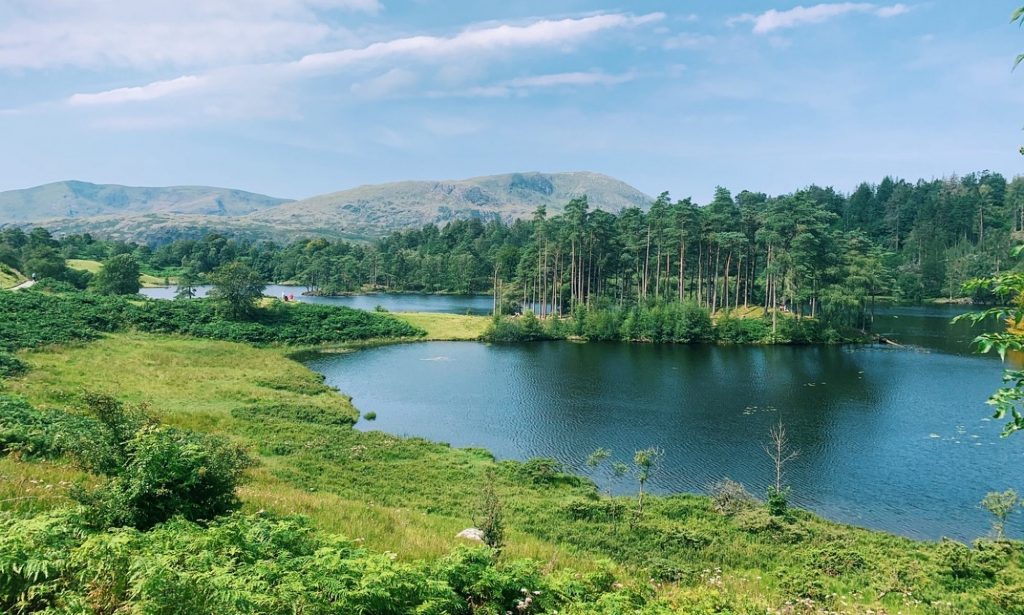Researching Positionality
Positionality statements need to include:
- The researcher’s worldview on the topic
- How this view shapes the scope of the research (background, identities, values, assumptions)
- Being conscious of biases, values, experiences
(Holmes, 2020) and (Youtube, 2015)
Statement of Positionality:
Why I am suited to utilising community to bring nature into city spaces:
I have a personal love for nature through growing up near the Peak District and having a keen gardener for a mother, nature has always been a prominent part of my life. However, having recently moved to London I experienced the harsh disconnect from nature in the city and therefore I wanted to make nature accessible for those in cities.
My undergraduate study of geography furthered this interest in the natural world under the lens of urban planning and green building, leading to my discovery of biophilic design. Subsequently, I aim to make the concept of biophilia approachable and integrated within the cityscape through multiple channels. My passion and skill to unite people and engage with stakeholders helped to drive this project into a community focus. The interdisciplinary and intersectionality nature of this project brings together my background and interests positionality.
My Position/ Biases:
My position as a privileged white female must be taken into consideration when placing nature at the forefront of current issues, as people in less privileged groups may have alternative priorities, with those living in deprived areas less likely to have visited natural spaces (GOV.UK, 2021). There are numerous controversies surrounding disparities in access to nature between different economic and ethnic groups (Nature Gap, 2020).
My education and access to nature ground my position as an expert in biophilia. However, I have currently assumed others have these privileges and failed to involve those who have not had access to education, which I will address in future community growth.
I have consciously collaborated with experts of varying backgrounds and ethnicities across the globe ranging from the UK to America, Singapore, Norway, Italy, and beyond to collate as many different viewpoints as possible.
Additionally, I must listen to those individuals who do not value nature, understand their perspectives and try to address them through the communities’ efforts.
Maintaining an Ethical Study
To ensure I have maintained and ethical practise throughout my project and in line with the work of Khanlou and Peter (2005) all participants have been offered the opportunity to conseal their identity and withdraw from the research at any time.
Additionally,, participants have been informed how their contributions will be utilised and stored. Consent has been gained to distribute any content online.
Furthermore, I have educated participants in the field of the research, unpacking terms of biophilic and biomimetic design, creating informed conversation.
Reflections
From this research into positionalities, I feel informed and ready to approach bringing professionals into the Nature In Community that offers very different perspectives from my own. Be these perspectives in terms of ethnicity, economic grouping, geographical locations, or ideologies, and viewpoints. I recognise the importance of including the whole story in my work as much as possible, for the community to be able to create real change and bring nature into city spaces in ways that cater for and excite as many different people as possible to spread the power of nature!
Additionally, I am now confident that I will continue to conduct ethical research after exploring the work of Khanlou and Peter (2005). I will ensure all ethical standards are maintained throughout my project in now forming the Nature In Community and beyond the study of my MA.
Bibliography
GOV.UK (2021) ‘The People and Nature Survey for England: Adult Data Y1Q1 (April- June 2020) (Experimental Statistics) GOV.UK [Online] https://www.gov.uk/government/statistics/the-people-and-nature-survey-for-england-adult-data-y1q1-april-june-2020-experimental-statistics/the-people-and-nature-survey-for-england-adult-data-y1q1-april-june-2020-experimental-statistics Accessed 29/09/21
Holmes, A.G.D., (2020). ‘Researcher Positionality–A Consideration of Its Influence and Place in Qualitative Research–A New Researcher Guide.’ Shanlax International Journal of Education, 8(4), pp.1-10.
Khanlou, N. and Peter, E., (2005) ‘Participatory action research: considerations for ethical review.’ Social science & medicine, 60(10), pp.2333-2340.
Nature Gap (2020) ‘Confronting Racial and Economic Disparities in the Destruction and Protection of Nature in America’ Nature Gap [Online] ‘https://www.americanprogress.org/issues/green/reports/2020/07/21/487787/the-nature-gap/ Accessed 20/10/21
Youtube (2015) ‘Positionality Statemnets’ Youtube [Online] https://www.youtube.com/watch?v=GpcIVzGYhVs Accessed 29/10/21
